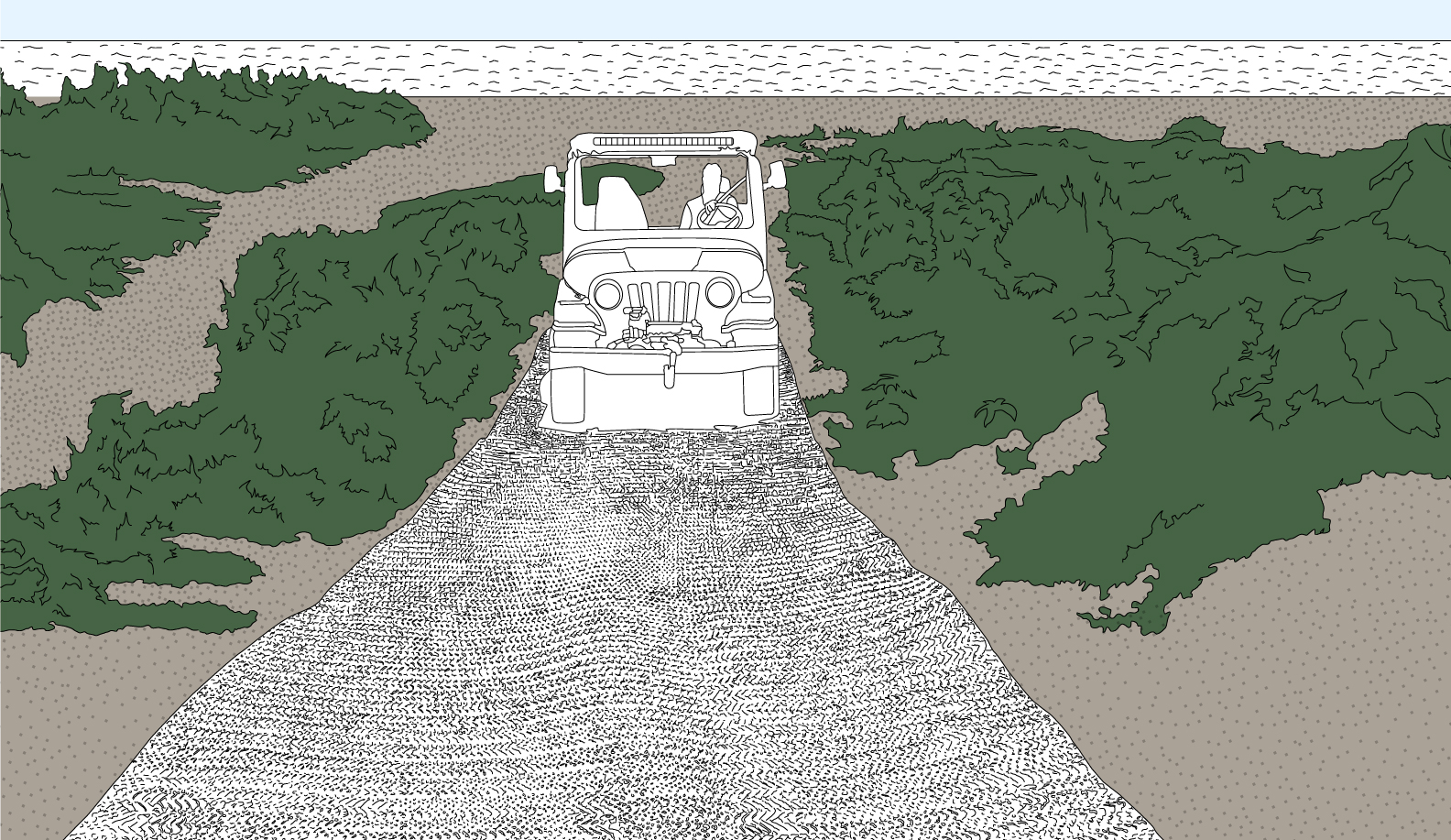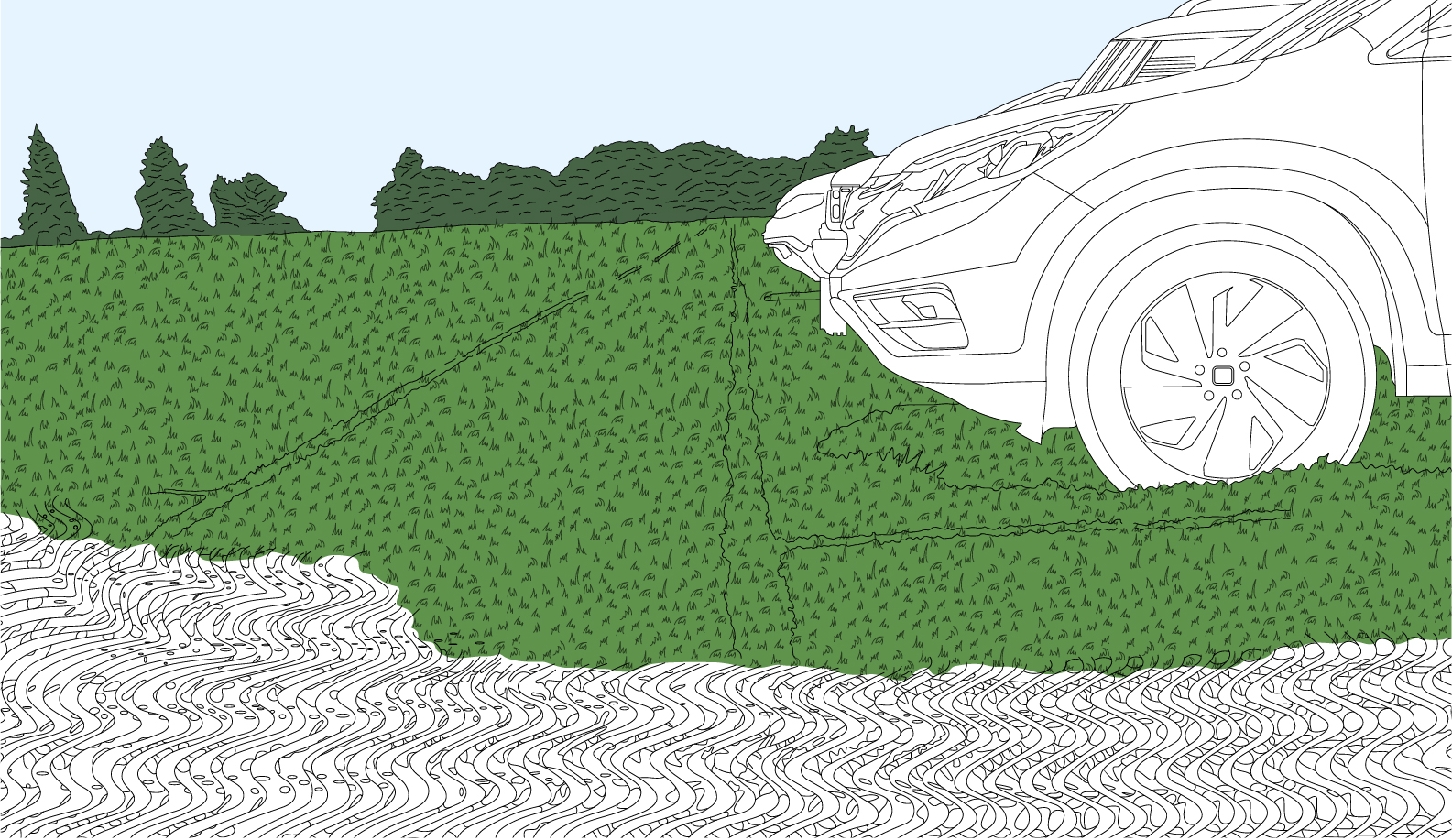The rise of the automobile led to the construction of more streets, more people traveling and when people travel they need to park; taking into account that these areas are impervious to water.
Stormwater runoff occurs naturally during rainfall, concrete and pavement cannot absorb water as it flows through man-made surfaces accumulating pollutants that seriously affect the ecosystem.
New designs of buildings, offices and other commercial structures require to retain and maintain the runoff of contaminated water, due to this need, more underground or surface structures are built that deprive us of valuable natural areas.

Grass-Max is paving the way to a new stabilization method, which uses natural soil and adds a new layer to stabilize the surface; preserving the natural landscape. Grass-Max allows vegetation to grow through it, strengthening it so that vehicles can pass over it, at the same time reducing polluted runoff, the “heat island” effect and the need for sewage.
Grass-Max is recognized for having different products:
Grass-Max 3500
For a surface with cars and trucks moving over it with an attached biaxial geogrid, closest comparison to pavement as possible.
Grass-Max 2500
For minimal exposure to vehicular traffic
Grass-Max 1500
For surfaces with foot traffic.
Grass-Max continues with its mission to convert vacant lots and temporary parking to a green state, taking into account that the parking of any commercial area is commonly used at a capacity of 30% daily.
We could take Grass-Max and turn that waterproof surface into a permeable surface.
We could remove that asphalt and that concrete by cooling our planet and returning it to its natural state

